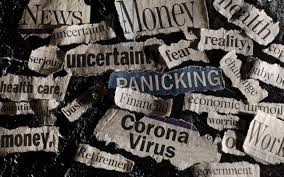If you or a loved one is struggling with panic disorder, you know that the journey to overcome it can be challenging and, at times, daunting. Panic disorder is characterized by recurrent, unexpected panic attacks and an intense fear of experiencing another one. These episodes can have a significant impact on an individual’s quality of life, making it crucial to find the right support and professional guidance. In this article, we will discuss the importance of finding a qualified panic disorder therapist near you. And also, provide tips on what to look for when selecting a mental health professional. Our goal is to help you take the first step towards healing and regaining control over your life.
Contents
Understanding Panic Disorder
 Panic disorder is a mental health condition characterized by recurrent, unexpected panic attacks. These attacks involve sudden episodes of intense fear or discomfort accompanied by physical and cognitive symptoms. Such as rapid heart rate, shortness of breath, trembling, and feelings of impending doom. The fear of experiencing another attack often leads to avoidance of situations where one might occur, impacting daily life and functioning.
Panic disorder is a mental health condition characterized by recurrent, unexpected panic attacks. These attacks involve sudden episodes of intense fear or discomfort accompanied by physical and cognitive symptoms. Such as rapid heart rate, shortness of breath, trembling, and feelings of impending doom. The fear of experiencing another attack often leads to avoidance of situations where one might occur, impacting daily life and functioning.
The exact cause of the panic disorder remains unclear. But it is believed to result from a combination of genetic, biological, psychological, and environmental factors. Early intervention and appropriate treatment are essential for managing panic disorder. With the help of a qualified panic disorder therapist, individuals can learn to manage their symptoms. And will definitely regain control over their lives.
How A Panic Disorder Therapist Near Me Can Help?
A panic disorder therapist near you can provide valuable support and guidance in your journey toward managing and overcoming panic disorder. Here are some ways a therapist can help:
- Personalized Assessment
A therapist will conduct a thorough assessment to understand your specific symptoms, triggers, and the impact of panic disorder on your life. This information is essential for developing a tailored treatment plan that addresses your unique needs.
- Evidence-Based Treatments
Panic disorder therapists are trained in evidence-based therapeutic approaches, such as Cognitive Behavioral Therapy (CBT) and Exposure Therapy. And these are proven to be effective in reducing panic attacks and anxiety. These approaches help you understand and change the thought patterns and behaviors that contribute to your panic disorder.
- Coping Skills Development
A therapist will work with you to develop effective coping strategies and relaxation techniques. Such as deep breathing exercises and progressive muscle relaxation, to help you manage anxiety. And also, reduce the frequency and intensity of panic attacks.
- Exposure and Desensitization
Your therapist may guide you through gradual exposure to feared situations or sensations, helping you face and overcome your fears in a safe and controlled environment. This process helps desensitize you to triggers and reduces the fear associated with panic attacks.
- Ongoing Support and Monitoring
A panic disorder therapist offers ongoing support and monitoring to track your progress and make necessary adjustments to your treatment plan. And address any setbacks or challenges that may arise along the way.
- Building Resilience
Finally, through therapy, you’ll learn skills to build resilience and improve your overall mental well-being. That can help prevent relapses and enhance your quality of life.
By seeking the help of a panic disorder therapist near you, you’ll have access to professional guidance and support. This will make a significant difference in your ability to manage and overcome panic disorder.
How To Find The Panic Disorder Therapist Near Me?
 Finding the right panic disorder therapist near you can make a significant difference in your recovery journey. Here are some steps to help you find a therapist that fits your needs:
Finding the right panic disorder therapist near you can make a significant difference in your recovery journey. Here are some steps to help you find a therapist that fits your needs:
- Seek referrals
Ask friends, family members, or your primary care physician for recommendations. You can also reach out to local support groups or mental health organizations for therapist referrals.
- Use online directories
Utilize online therapist directories or search engines to find mental health professionals in your area who specialize in treating panic disorder. Websites such as MantraCare, or the Anxiety and Depression Association of America (ADAA) offer searchable databases of therapists.
- Verify credentials
Ensure the therapist is licensed and has the appropriate credentials to practice in your state. Look for therapists with specific training or experience in treating panic disorder or anxiety disorders in general.
- Check insurance coverage
If you have insurance, contact your provider to obtain a list of in-network therapists who specialize in panic disorder. This can help minimize out-of-pocket expenses.
- Schedule consultations
Reach out to potential therapists for an initial consultation, either by phone or in person. This is an opportunity to discuss your concerns, ask questions, and assess whether you feel comfortable working with them.
- Trust your instincts
It’s essential to feel comfortable and safe with your therapist, as a strong therapeutic relationship can significantly impact your progress. If you don’t feel a connection with a particular therapist. Then, don’t hesitate to continue your search until you find the right fit.
- Consider online therapy
If you’re having difficulty finding a panic disorder therapist near you, consider exploring online therapy options. Many therapists now offer virtual sessions, which can provide the same level of support and treatment as in-person sessions.
By following these steps, you can find a panic disorder therapist near you who will help you navigate the challenges of panic disorder. And guide you toward a healthier, more fulfilling life.
What Are The Top Resources To Help You?
Here are the top 5 resources to help you find support and information on managing panic disorder:
MantraCare
MantraCare is an online mental health platform that offers evidence-based therapy for a range of mental health conditions, including panic disorder. They provide personalized treatment plans, access to experienced therapists, and self-help resources to empower individuals on their path to recovery.
Anxiety and Depression Association of America (ADAA)
The ADAA (https://adaa.org/) is a nonprofit organization dedicated to increasing awareness and improving the diagnosis, treatment, and cure of anxiety, depression, and related disorders. They offer a wealth of information, resources, and a directory of therapists specializing in anxiety disorders, including panic disorders.
National Institute of Mental Health (NIMH)
The NIMH (https://www.nimh.nih.gov/) is a leading government agency for research and information on mental health disorders. Their website provides comprehensive information on panic disorder, including symptoms, risk factors, diagnosis, treatment options, and related research.
Mental Health America (MHA)
MHA (https://www.mhanational.org/) is a community-based nonprofit organization dedicated to addressing the needs of people living with mental illness and promoting overall mental health. Their website offers resources, toolkits, and screening tools to help individuals understand and manage the panic disorder.
HelpGuide
HelpGuide (https://www.helpguide.org/) is an organization that provides evidence-based mental health resources and self-help tools. Their website offers a comprehensive guide to understanding, treating, and living with panic disorder, including practical tips and strategies for managing symptoms and improving overall well-being.
Overall, these resources can provide valuable information, support, and guidance on managing panic disorder. And also, connecting you with professional help when needed.
Conclusion
In conclusion, finding a panic disorder therapist near you is a crucial step towards overcoming the challenges posed by panic disorder and reclaiming your mental well-being. By actively seeking the right professional support, you can unlock the tools and strategies needed to manage your symptoms and reduce anxiety. Your journey toward healing may require time, commitment, and patience. But with the right therapist by your side, you can build resilience and transform your life.
Take advantage of the available resources, and remember that you are not alone on this path, as countless others have successfully navigated their way to recovery and a more fulfilling life.
For more information, please contact MantraCare. Online therapists are increasingly important in today’s world because they provide a convenient and accessible way for people to receive mental health support and treatment. Visit MantraCare If you are searching for a “therapist near me”. Book a trial Online therapy session


